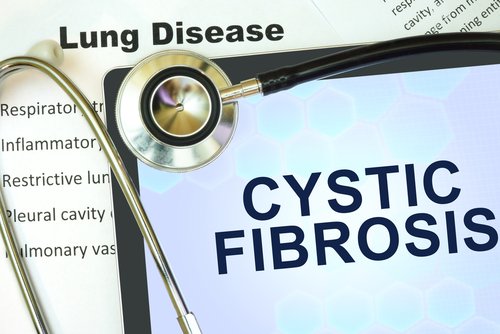Relizorb Improves Nutritional Status in Tube-Fed CF Patients, Study Finds
Written by |

Treatment with Alcresta Therapeutics’ product Relizorb effectively increased fat absorption in patients with cystic fibrosis (CF) receiving enteral tube feeding who have trouble breaking down and absorbing these molecules. This resulted in a reduction of the frequency and severity of gastrointestinal symptoms.
These findings were published recently in the Journal of Pediatric Gastroenterology & Nutrition, in a study titled “Increased Fat Absorption from Enteral Formula Through an In-line Digestive Cartridge in Patients with Cystic Fibrosis.”
CF patients who lack the ability to absorb fat molecules receive enteral feeding to improve their nutrition.
Relizorb was evaluated in a study (Study 497) that spanned 27 days and included 33 pediatric and adult patients (ages ranging from 5 to 45 years, with a mean age of 14.5 years) with exocrine pancreatic insufficiency (EPI) associated with CF, and who had been receiving enteral feeding for approximately seven years.
Researchers analyzed fat absorption through the changes in plasma levels of relevant fatty acids, namely the omega-3 fatty acids docosahexaenoic acid (DHA) and eicosapentaenoic acid (EPA). DHA and EPA are energy sources and essential components of cell membranes, and are involved in several body functions necessary for the maintenance of normal development and overall health.
Contrary to placebo, treatment with Relizorb induced a significant improvement (2.8-fold) in the total levels of DHA and EPA absorption. Also, RELiZORB use during the administration of enteral nutrition among these patients was safe and well-tolerated. Patients reported a decrease in the frequency and severity of gastrointestinal symptoms, particularly stool-related symptoms, associated with deficient fat absorption.
“The publication of Study 497 is an important milestone as we build evidence in support of RELiZORB in this patient population,” Daniel Tassé, Alcresta Therapeutics’s CEO, said in a press release. “Patients who receive enteral nutrition often struggle to maintain a healthy nutritional status, and often miss out on consumption of critical calories. The results of this study provide us with the first well-controlled, randomized, double-blind study that showed improvements of fat absorption in patients on enteral nutrition within just 24 hours of treatment with RELiZORB,” he said.
“The increase in DHA and EPA plasma levels in the 497 study demonstrates that this strategy can increase absorption of fats and in particular critical healthy omega-3 fatty acids” said study researcher Steven Freedman, MD, PhD. “These are potentially important clinical benefits for patients who are put on nighttime enteral feedings but are waking up full, not eating breakfast and not benefitting from the positive caloric value that having a meal offers. This study is evidence of an important option that is now available to help these patients and their physicians meet important nutritional goals,” Freedman said.
The active ingredient in Relizorb is the digestive enzyme lipase, attached to polymeric carriers together called immobilized lipase (iLipase). As the enteral tube feeding formula passes through Relizorb, it makes contact with the iLipase components and the fat in the formula is broken down to its absorbable form (fatty acids and monoglycerides) prior to ingestion. This method allows the absorption of 90 percent of the fats present in most enteral feeding tube formulas, including DHA and EPA.






